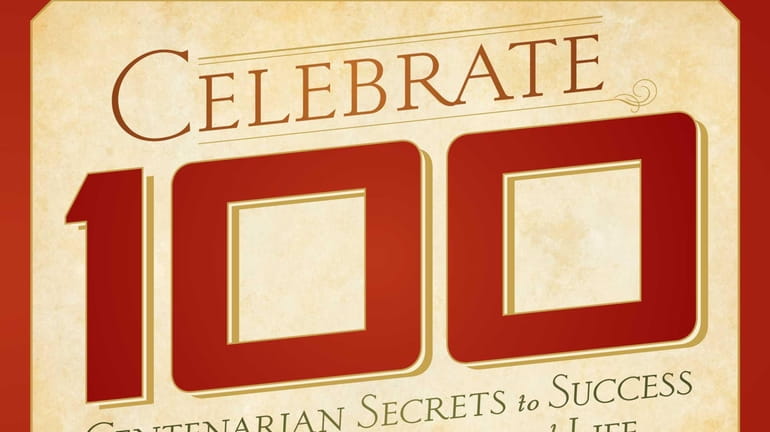Centenarians give tips on reaching 100

From 1980 to 2010, the number of centenarians in the United States grew 66 percent, while the total population grew 36 percent, according to the U.S. Census Bureau. Credit: Handout
It's not the same old story.
More people are living to 100, and many are crossing the century barrier in relatively good health. From 1980 to 2010, the number of centenarians in the United States grew 66 percent, while the total population grew 36 percent, according to the U.S. Census Bureau. As of the 2010 census, there were more than 53,000 Americans 100 or older.
How do you get to 100? One way to find out is to ask centenarians how they made it, which is what Lynn Peters Adler has been doing for almost 30 years.
Adler, founder and director of the not-for-profit National Centenarian Awareness Project, has learned from her talks with thousands of centenarians that many share similar personality traits. "They have a positive yet realistic attitude," she says. While many "young" people -- like those in their 60s and 70s -- might complain about disabilities and a declining quality of life, centenarians typically recognize the limits and cherish their lives. "They accept the losses and changes that come with aging, and don't let it stop them," Adler says. "They find ways to cope, adjust, adapt."
Adler and co-author Steve Franklin have written "Celebrate 100: Centenarian Secrets to Success in Business and Life" (Wiley, $26.95). The book, based on interviews and surveys of more than 500 centenarians, sheds light on a remarkable segment of the population. "These people have lived through all of our lives and all of our parents' lives," Adler says. "They show us what's possible. They show us the future of aging."
Most people profiled in the book are what Adler calls "active centenarians." Many still do some form of physical exercise, and virtually all stay mentally sharp and maintain a network of social contacts. Not surprisingly, the vast majority have never smoked, drunk alcohol excessively or been obese. While these healthy habits can be followed by everyone, centenarians also appear to have been born with a genetic edge. Many had long-lived parents and siblings.
Adler has also noticed that virtually all centenarians have a sense of humor and a good dose of self-esteem. Another important trait: "Personal courage, because a lot can go wrong," she says. She notes many had to overcome serious and painful medical problems but refused to give up.
Overall, centenarians had few complaints and an abundance of optimism. "When you can say you're enjoying every day of your life at 100, it doesn't get any better than that," Adler says.
